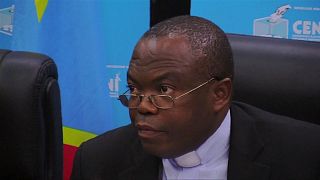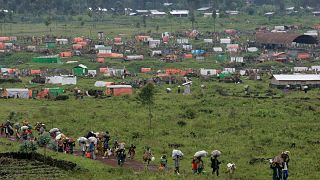Democratic Republic Of Congo
DR Congo’s prime minister, Sylvestre Ilunga Ilunkamba, resigned on Friday, the presidency said, a move enabling President Felix Tshisekedi to appoint his own premier supported by a new parliamentary majority. Presidency spokesman Giscard Kusema told AFP that Illunga “said he had drawn the consequences of the developing political situation
Ilunga, a close ally to former president Joseph Kabila whose supporters have been in a power struggle with Tshisekedi, was constitutionally required to resign after being censured by the National Assembly on Wednesday.
Lawmakers in the Democratic Republic of Congo (DRC) on Wednesday had dismissed the PM on Wednesday evening during a parliament plenary session held in Kinshasa.
The dismissal came after the majority of the lawmakers passed a vote of no-confidence to the Premier alleging his inability in the management of the country.
The National Assembly approved a motion of censure against Ilunga Ilunkamba and his government by 367 votes to seven.
The Prime Minister boycotted the session terming it illegitimate under the constitution and internal regulations of parliament.
The session was also boycotted by pro-Kabila party Mps who also stressed that the parliament session had no mandate capacity to organize the vote according to the constitution.
President Félix Tshisekedi and his two new allies still do not agree on the appointments of several heads of major institutions, following the end of the alliance between him and former president Joseph Kabila. The post of Prime Minister and leadership of the National Assembly’s office are in contention.
Tshisekedi, who took office in January 2019 but has been frustrated by a coalition government with Kabila’s allies, who won parliamentary majorities in the same election.
By controlling a majority in Parliament, President Tshisekedi would be able to nominate a cabinet of his choosing after two years in which Kabila’s allies have dominated the major ministries.
Tshisekedi now hopes to form a new majority in parliament by winning over members of Kabila’s coalition












00:56
Peace talks between DRC and M23 rebels 'moving in the right direction'
01:00
Pix of the Day: July 3, 2025
01:08
DRC extends ban on cobalt export for another three months
00:59
DR Congo's new opposition coalition launched in Kinshasa
01:41
DRC: UN rights chief says army, M23 forces have committed atrocities
01:07
WHO says the mpox outbreak remains a public health concern